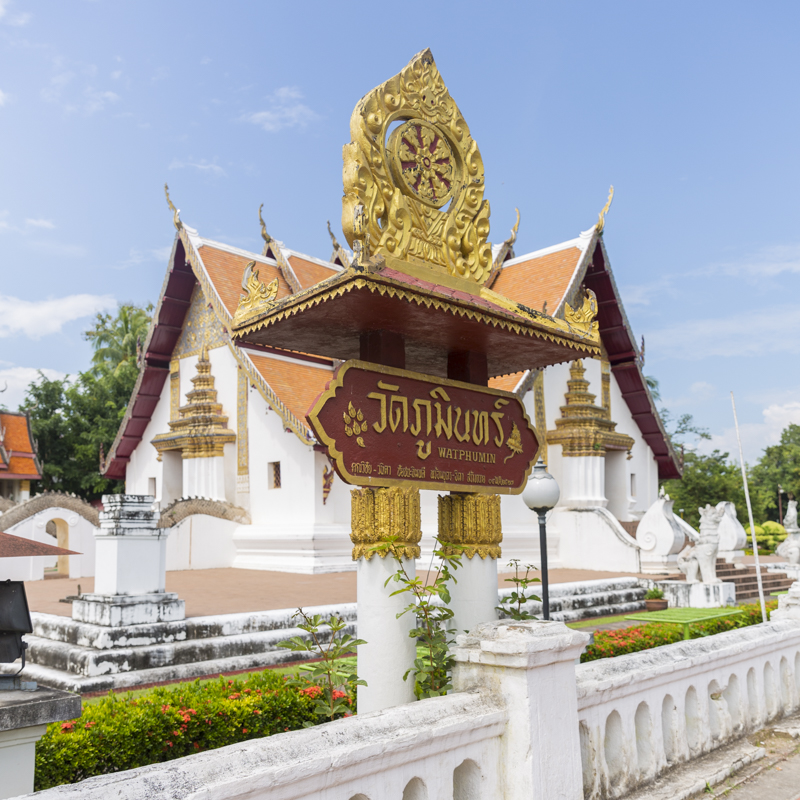
Wat Phumin, Nan
When you think of Thailand as the tourism authorities sum it up, a myriad images usually crop up - from beaches and snorkelling to spas and massage, from Buddhist temples and ornate stupas to Khon, the traditional dance form. Then there are long-tailed boats, tuk tuks, flea markets and spicy seafood. The slideshow begins. Yet, something else deserves a place on this list: traditional crafts. It is not that there is any paucity of beautiful handicrafts in this wondrous country - it's just the rest of the imagery has a stronger gestalt!
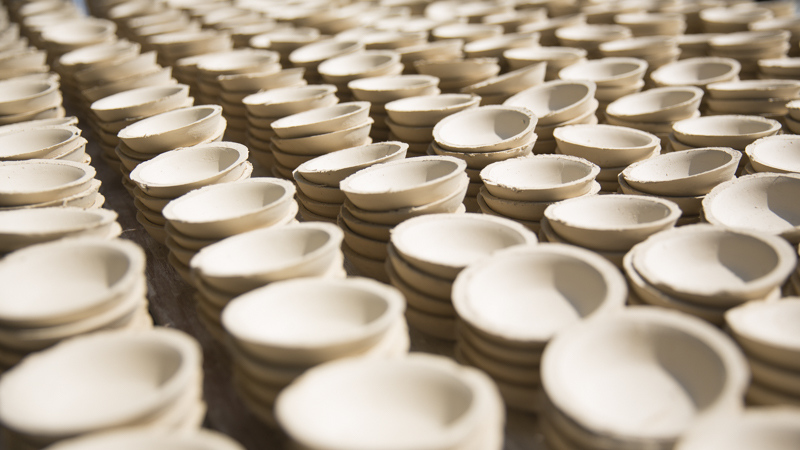
Making of "chicken bowls".
After the conclusion of the Travel Bloggers Exchange (TBEX) in Bangkok, a few of us were flown down to Chiang Mai by the Tourism Authority of Thailand en route three provinces I had not explored before -- Lampang, Phrae and Nan. Though I had browsed the itinerary, I was not prepared for what was to unravel.
We landed in Chiang Mai airport and were driven straightaway to Lampang. First stop: Dhanabadee Ceramic Group's factory. While I have known and seen what typical ceramic factories are all about, I was not prepared for what confronted us there.

"Chicken bowl' in gold.
We were navigated through the reception area into corridors and hallways that subtly showcased the history of this famous institution known for its "chicken bowls". We saw the smallest chicken bowl and one painted in pure gold and also how these objects are shaped and painted.
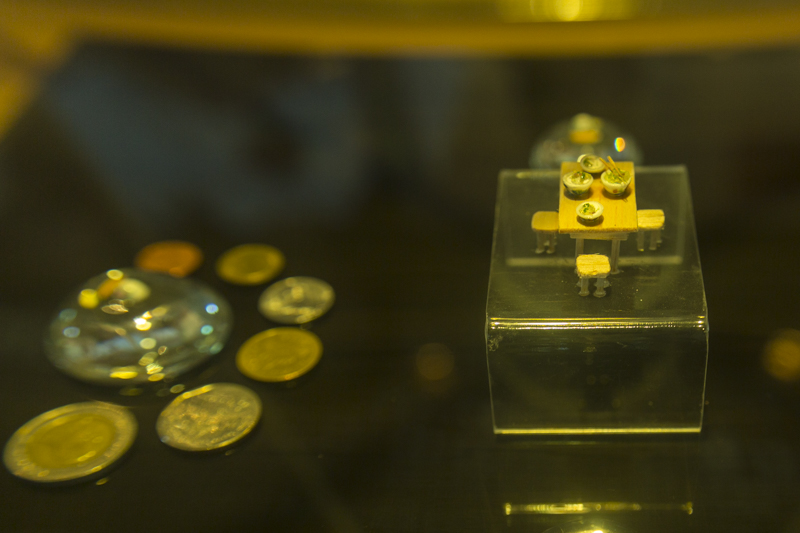
The smallest 'Chicken Bowl'
When we thought we were all done there, we were made to sit on a workman's table and given a ceramic bowl each. The task assigned to us was to turn those ordinary ceramic bowls into "chicken bowls"! We started hesitantly but then, the artist in us emerged and soon enough, each of us had our own brand of chicken bowl to flaunt.
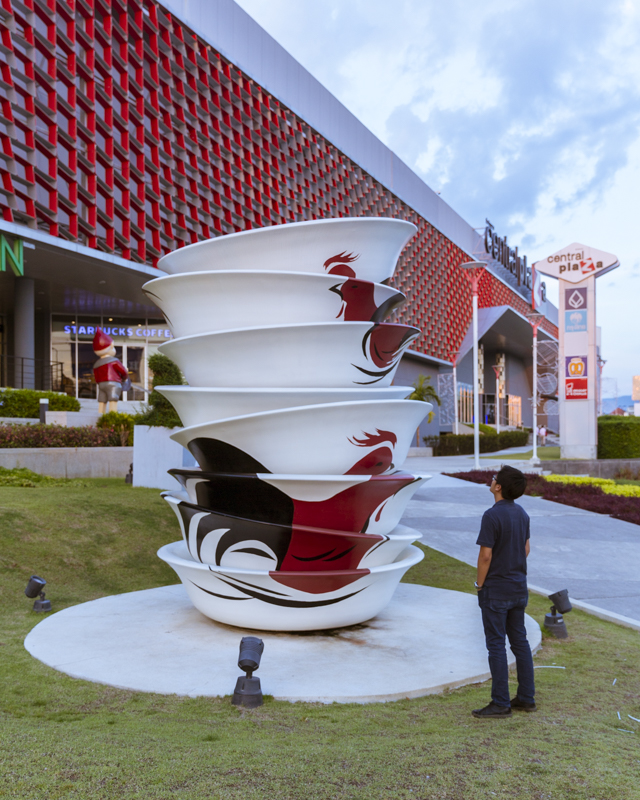
The largest "chicken bowls".
While the Dhanabadee Ceramic Museum has the smallest chicken bowl on display, the largest ones are in Lampang. These lie stacked up outside Central Plaza Mall in the city.
We spent the night in Lampang River Lodge, a property ensconced in the lap of nature - it has scores of hundred-year-old trees, a lake filled with lotuses, a meandering swimming pool and cottages built on aged wooden decks.
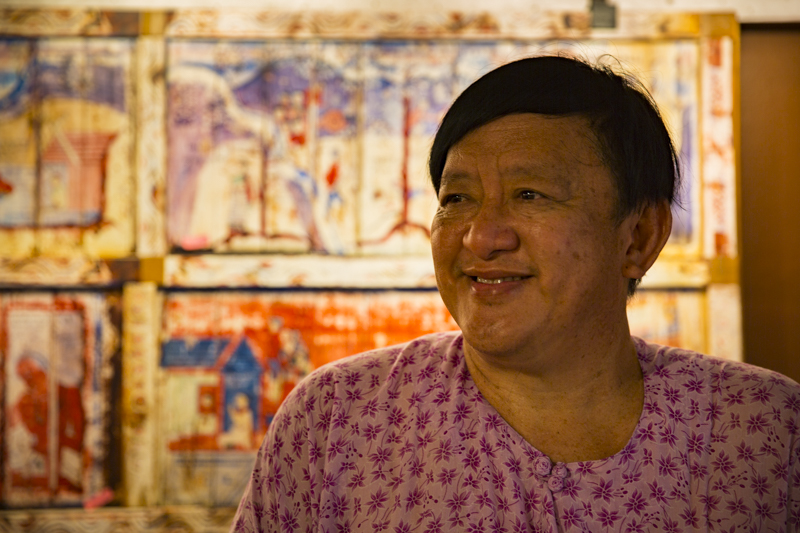
Komal Panichpun, the founder of Komol Fibreland
Next stop -- Long in Phrae province. We started the day by visiting the Komol Antique Textile Museum (also called Komol Fibreland) founded by Komol Panichpun. The museum was both delightful and full of surprises.
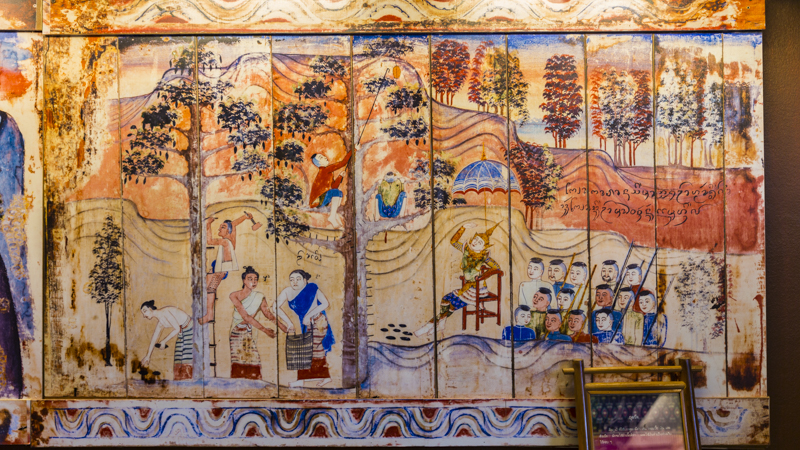
An exquisite example of a tempera painting, on display at the Komol Antique Textile Museum.
The first section we saw had antique tempera paintings. These were done on wooden planks that formed the wall of a house. The work was elaborate and well-preserved.
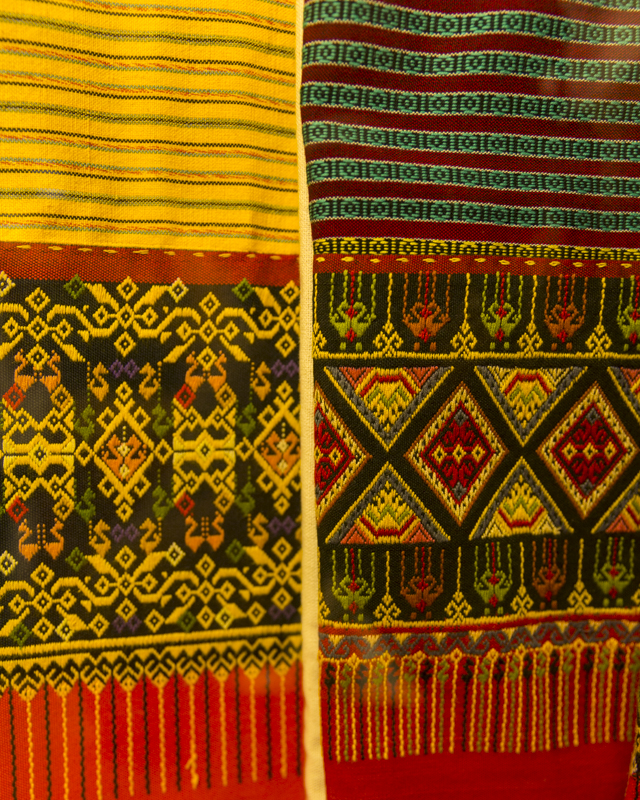
Pha Sin (Thai tube skirt) display.
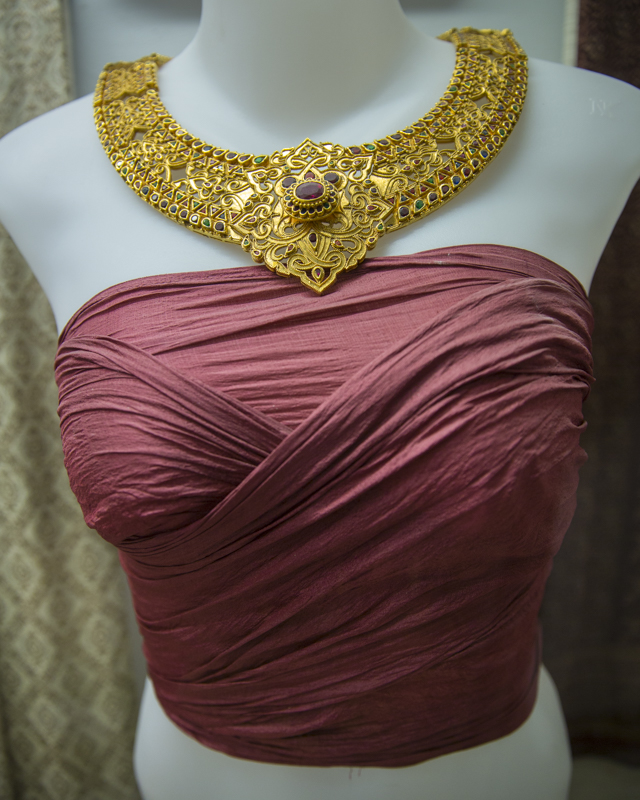
Ethnic Thai jewellery.
Another section of the museum had traditional Pha Sin (Thai tube skirts) with exquisite and detailed folk work from various regions of Thailand. Not only did it have contemporary work but had a sizable collection of ancient weaves too. This section also displayed ethnic jewellery.

From Punjab to Portugal, this dolls attire collection has it all!
Yet another section had a cute collection of dolls attired in traditional costumes from a large number of countries and regions across the globe.
We then proceeded to the town of Ban Thung Hong in Phrae. This place is known for Thailand's answer to denim -- mo hom (mo = pot; hom = Indigo). The craft belongs to Thai Phuan people who migrated from Laos, and has been passed on from one generation to the next.
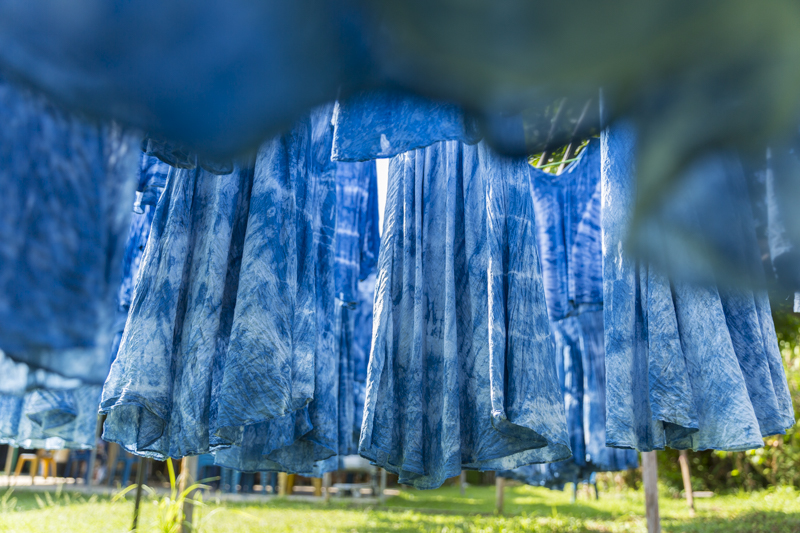
Just-created mo hom hanging out in the sun to dry.
The town of Thung Hong is officially heralded by Thailand as "Champion of Handicrafts". Here, the garments take shape from the dye produced by the Indigo plant to the final output in the form of shawls, bags, scarves, shirts and more.
Here, we were made to experience how ordinary white cotton cloth turns into the iconic deep blue mo hom. Not only that, as a souvenir, we were gifted scarves we created ourselves!
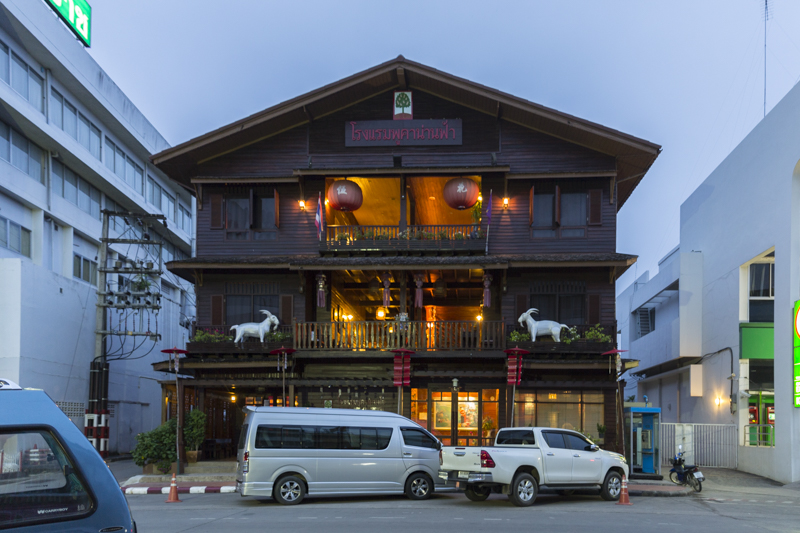
Pukha Nanfa Hotel, Nan
From here, we moved on to Nan Town of Nan province and checked into Pukha Nanfa Hotel. This property, a former Chinese tea room converted into a boutique hotel, had plenty of character. It was a joy to sit in their all-wood open foyer and enjoy a relaxed cup of coffee.
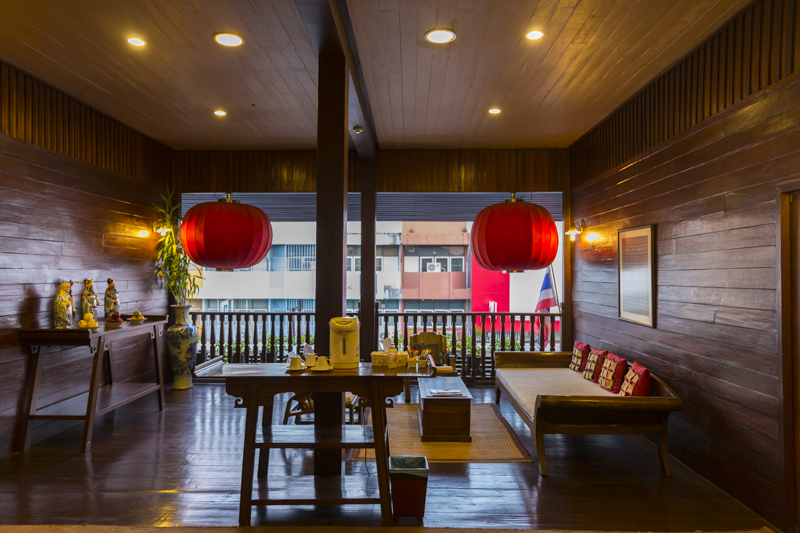
Foyer on first floor (second floor in Thailand) of Pukha Nanfa Hotel.
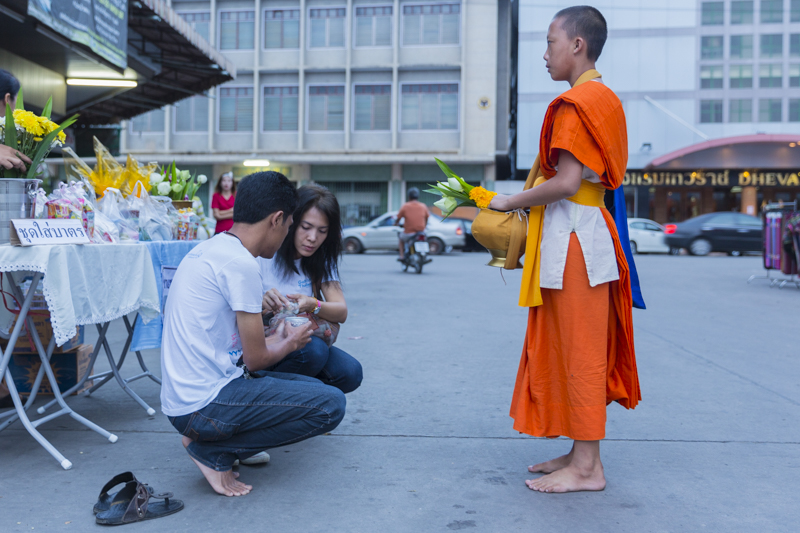
Alms to the monk.
We woke up early next morning to offer alms to Buddhist monks and found we were not alone. It seemed the whole town religiously followed this ritual. In and around the city centre market, we could see monks praying for all alms-givers at every street corner.
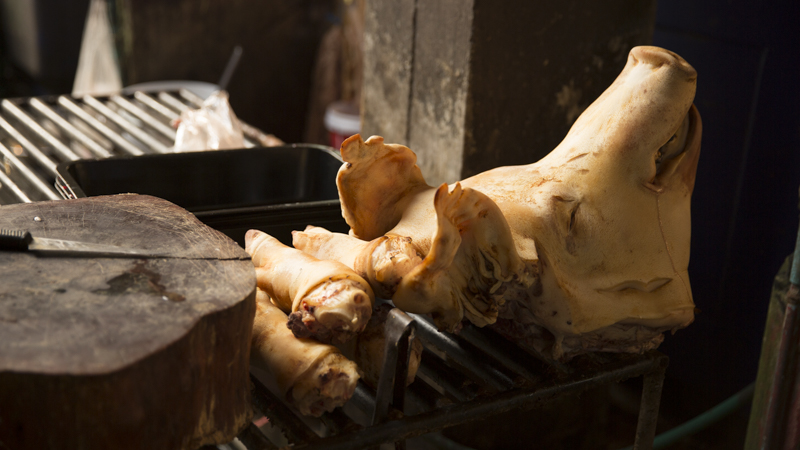
Fresh pork in Nan City Market.
The city market offered an insight into the lives of the city's people. We feasted our eyes on fresh vegetables, poultry, pork, spices and condiments, sweets and savouries, local ready-to-cook and cooked dishes, pots and pans... the works.
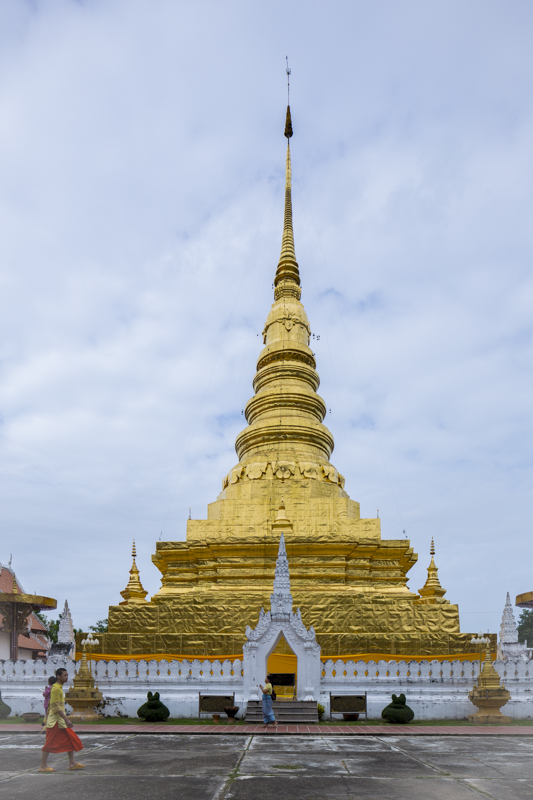
55-metre-high golden chedi in Wat Phra That ChaeHang.
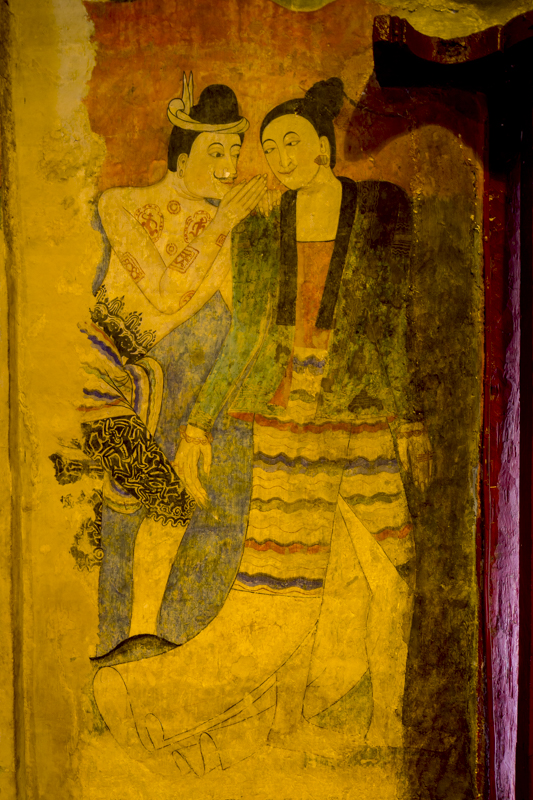
Famous Thai painting of the "Whispering Man" adorning the interior wall of Wat Phumin.
Our morning took us to Wat Phra That ChaeHang. This Thai temple has a 55-metre high golden chedi. Here, we visited the school for monks and were given a demonstration of "how Buddhist monks wear their robe."
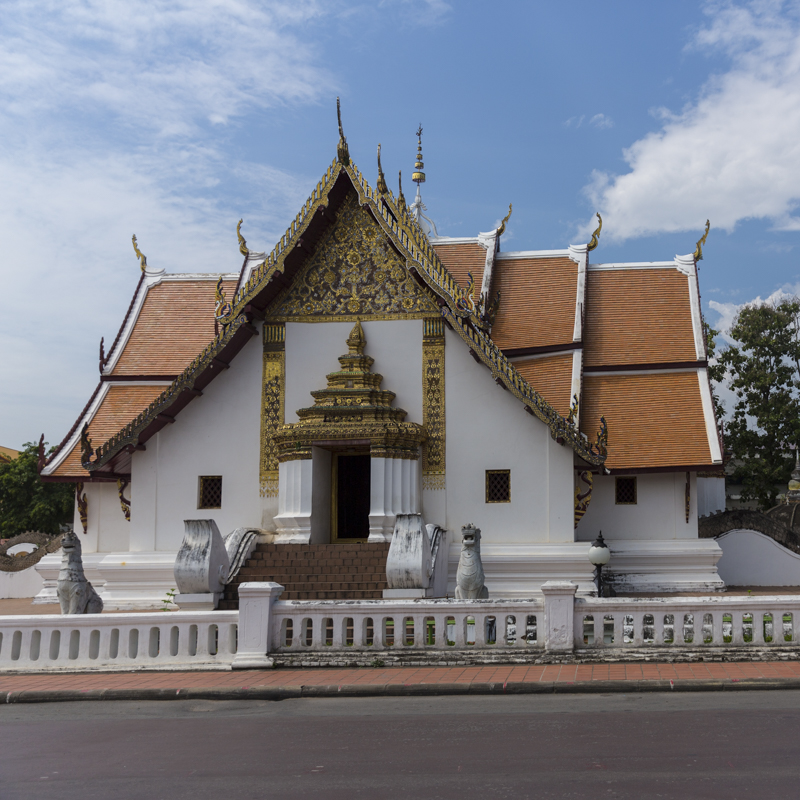
Wat Phumin, Nan.
After breakfast, we visited Wat Phumin, an ancient temple that has a famous Thai painting of a "Whispering Man" adorning its interior wall.
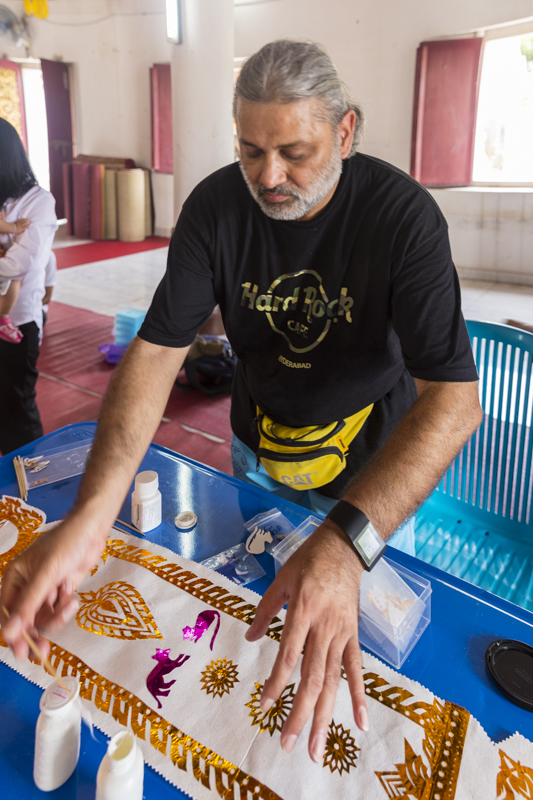
The making of prayer flags.
We then visited Wat PhraGerd and joined the locals in making the tung (vertical flag). These vertical flags are an offering to Buddha and ancestors.
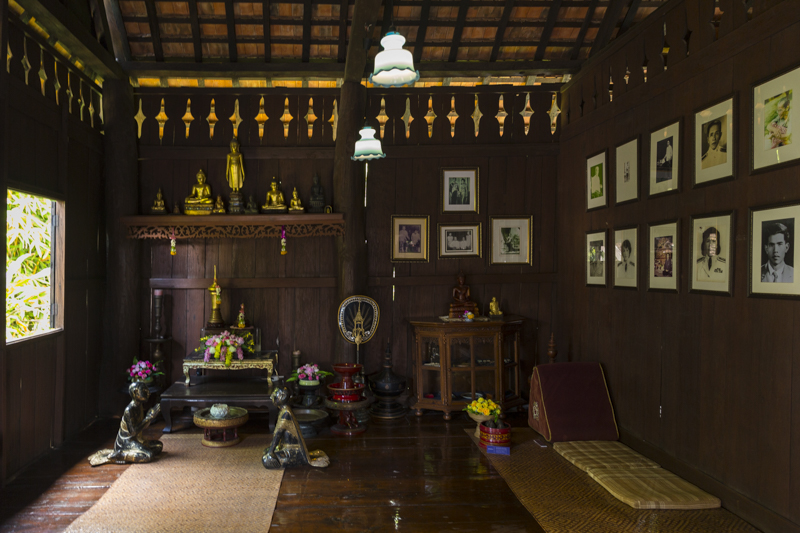
Hong Jao Fong Kam, a sprawling house in Nan built entirely of teak wood
Our lunch was a traditional Northern Thai meal at Hong Jao Fong Kam, a sprawling house in Nan, built entirely of teak wood. In earlier times, these large teak wood houses were reserved for nobles.
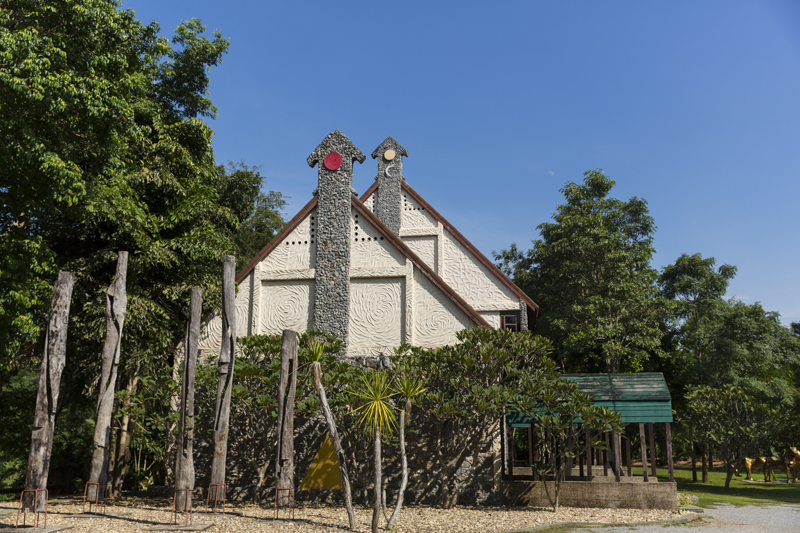
Nan Riverside Art Gallery
We spent the afternoon at Nan Riverside Art Gallery, enjoying its delightful display and a blessing of bountiful natural beauty. As the name suggests, it is by a river. Here, we painted the famous Thai "Whispering Man" on to a canvas bag that was given to us as a souvenir.
Acrylic on canvas.
While we were being driven back to Nan Airport, a vivid visual time-lapse of these three days went around my mind. It made me realise that "Amazing Thailand" is not just a marketing slogan, but two words steeped in oodles of truth reflecting a rich centuries-old heritage that gives this land its arts, crafts and tradition. The experience was compelling and I must urge all readers to spend a few days here during their next Thailand sojourn. When you return and say thanks, you will find me magnanimously saying "mention not!"
This post first appeared here.
 Like Us On Facebook |
Like Us On Facebook |  Follow Us On Twitter |
Follow Us On Twitter | Also see on HuffPost: